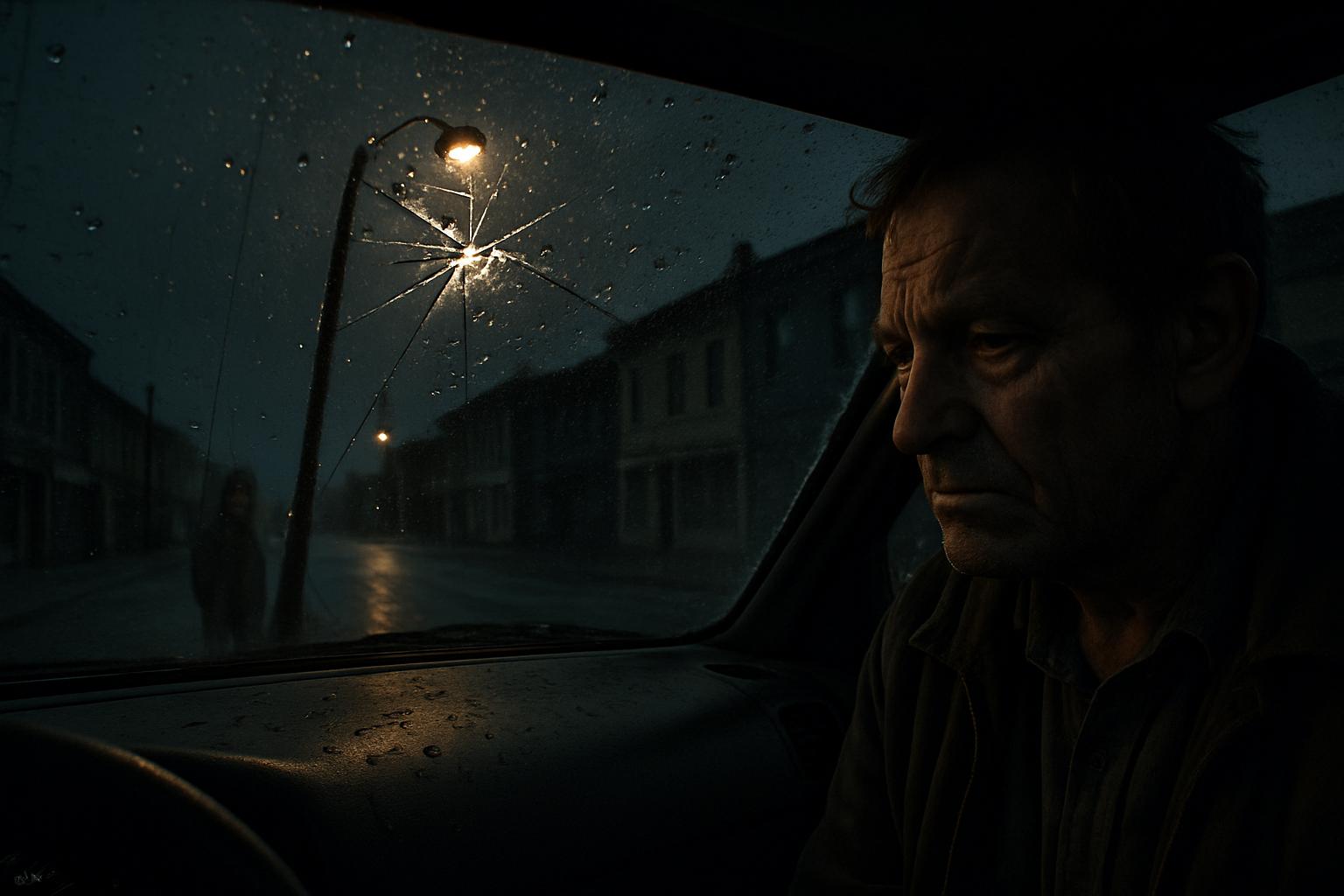Samuel D Hunter's 2015 play Clarkston offers a bleak yet intimate exploration of life on the margins in contemporary America. Set in the eponymous nondescript town, the play delves into themes of drugs, unemployment, and a pervasive sense of purposelessness, reflecting the struggles of its characters to find meaning amid stasis and hardship. Despite its occasionally heavy-handed and expository dialogue, the production nurtures an intimate story about resilience and human connection under challenging circumstances.
At the heart of Clarkston is Jake, played by Joe Locke in his West End debut. Locke, known for his role in Heartstopper, portrays Jake as a forcefully optimistic liberal arts graduate diagnosed with Huntington’s disease. Jake’s dream of journeying westward to follow in the footsteps of his distant relative, the pioneer William Clark, is consistently thwarted by his illness and the limitations of his surroundings. Working night shifts at Costco, Jake’s determined yet naïve optimism clashes with the reality of his environment, setting the tone for the story’s emotional core.
Jake’s life intersects with Chris, portrayed by Ruaridh Mollica, whose tough exterior conceals deep vulnerability. Mollica’s performance is often singled out for its emotional honesty and nuance, capturing Chris’s struggle with his own identity and his battle against isolation. The character’s inability to communicate his romantic feelings and his limited experience of the world beyond his small town are conveyed with compelling sincerity. The dynamic between Jake and Chris unfolds with a tender authenticity that forms the emotional backbone of the play.
Adding further complexity is Sophie Melville’s portrayal of Trisha, Chris’s troubled mother, whose addiction and manipulative behaviour create additional strain and discomfort, especially around Jake’s well-meaning but misplaced efforts to help. Melville delivers her role with what critics describe as “immaculate control,” bringing emotional intensity to the tension within this fractured family unit.
The staging of Clarkston, designed by Milla Clarke, features a minimal and functional set dominated by warehouse props such as cardboard boxes and cheese balls, symbolising the monotonous and confining world the characters inhabit. Some aspects of the staging, including the use of on-stage seating for some audience members, have been noted as distractions that add little to the dramatic tension and instead create practical concerns. However, the production’s lighting and atmospheric design, including an ominous underscore, effectively enhance the intimate and somber tone of the play.
While some critics have pointed out the script’s occasional over-explanation and lack of subtlety, the overall production, directed by Jack Serio, has been praised for its emotional depth and the palpable chemistry between the leads. The play’s tenderness comes through in moments of shared vulnerability, small gestures of kindness, and the quiet companionship the characters offer each other in their darkest moments. It’s a portrayal of finding purpose not in grand achievements but in simple human presence and acceptance.
Clarkston runs until 22 November 2025 at the Trafalgar Theatre, offering audiences a quietly devastating meditation on friendship, mortality, and the search for meaning in a seemingly stagnant world. The performances, particularly by Mollica and Locke, are widely regarded as highlights, with some reviewers calling Mollica’s work among the best currently available in the West End.
📌 Reference Map:
- Paragraph 1 – [1], [6]
- Paragraph 2 – [1], [7]
- Paragraph 3 – [1], [2], [5]
- Paragraph 4 – [1], [3], [5]
- Paragraph 5 – [1], [4]
- Paragraph 6 – [1], [2], [4], [5]
- Paragraph 7 – [6], [2], [5]
Source: Noah Wire Services
